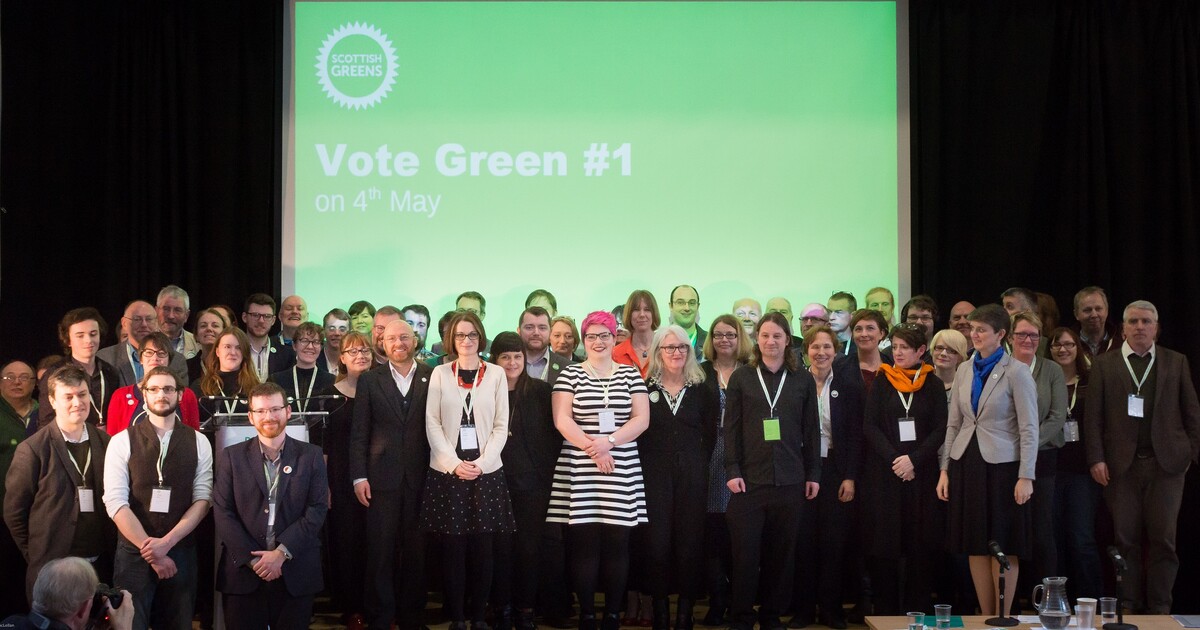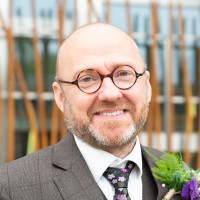We shouldn’t hoard power but put it in the hands of local people

Holyrood is in recess this week, but a recess that comes just a month before Scotland goes to the polls in the council elections was never going to be a quiet time! I’ll be getting out around the country over the coming weeks, but recently I’ve been campaigning with our Green candidates in my home city of Glasgow.
It’s a city that’s in dire need of change, and I know that it’s not only the Greens who think so. I doubt it can ever be a healthy thing for a political party to become so dominant that people find change unachievable for decades; Glasgow has been Labour-run for an unbroken 37 years, and indeed since the early 1950s there have been only a couple of brief exceptions.
So it’s natural that I’m making the case for a change that brings new diversity, not just swapping one dominant party for another.
Because the downside of dominance isn’t just about whether you agree or disagree with that particular party. Politics, especially local politics, should be about sharing power and making decisions together instead of imposing on people. Such a long period of dominance can only breed complacency, and the result is that many people feel that politics is something that’s done to them, instead of something they can take part in.
Putting power in people’s hands means following up on some good ideas that Greens have pioneered in local councils, like inviting people to take part in decisions as a community, setting budgets together to make sure that council funds are used for the priorities of real people instead of being directed from behind a desk in the council offices.
This approach could be taken further with ideas like citizen assemblies, street committees, and using face-to-face and online ways of bringing in the voices of people who’re often furthest away from power. These ideas should do more than just make “consultation” work better; they should give people the ability to actually make decisions about their communities, building their experience and confidence so that the next time they see a local problem they don’t need to wait for someone else’s permission to create solutions. This local empowerment needs to go hand in hand with local ownership, so that more of the public assets we’ve all invested in can be managed in the way local people want.
There are huge challenges facing people in communities all over Scotland, but by sharing power instead of treating it as a prize to be won we can find better solutions.
Housing’s a good example. All political parties agree that we need more investment in housing, even if they disagree about what “affordable” means, or the balance between private and social ownership. But the basic decisions about what housing should be built and where are way out of most people’s reach. Land that’s zoned for housing shoots up in price, with the result that housebuilders prioritise high value homes to maximise their profits, green spaces get bulldozed, and people end up being priced out of buying, or fleeced for private rent. If community housing organisations could buy land at its current value (as happens in other European countries, and used to happen here), and local people decided whether and how it should be developed, we’d see homes built for social need instead of speculative investment. The people making these decisions and the people living with the consequences wouldn’t be in conflict – because they’d be the same people.
Investing in strong and diverse local economies should be a priority across the political spectrum too. Local communities with the power to invest their community-owned resources for the future shouldn’t be a pipe dream; it’s normal in many other countries. From locally owned energy companies to social enterprises on the high street, these are the businesses which will keep their roots in the communities they serve, investing for a sustainable, long term future.
Of course our councils can’t even get started down this path if they’re strapped for cash just to cover the basic services people need to rely on. We won’t see buses run for the public good, or a Living Wage Plus for care workers, if councils are forced to keep relying on broken systems like the Council Tax or see their funding from central government squeezed each year while their costs rise. The extra £160M funding that Green MSPs won from the Scottish Government budget for council services will help a lot, but it must be only the start.
Every community in Scotland could unleash great potential if we put power in people’s hands – but that means political parties need to stop seeing power as something to be hoarded for as long as they can hang onto office, and instead see it as something to be shared.
This article first appeared in The National.
